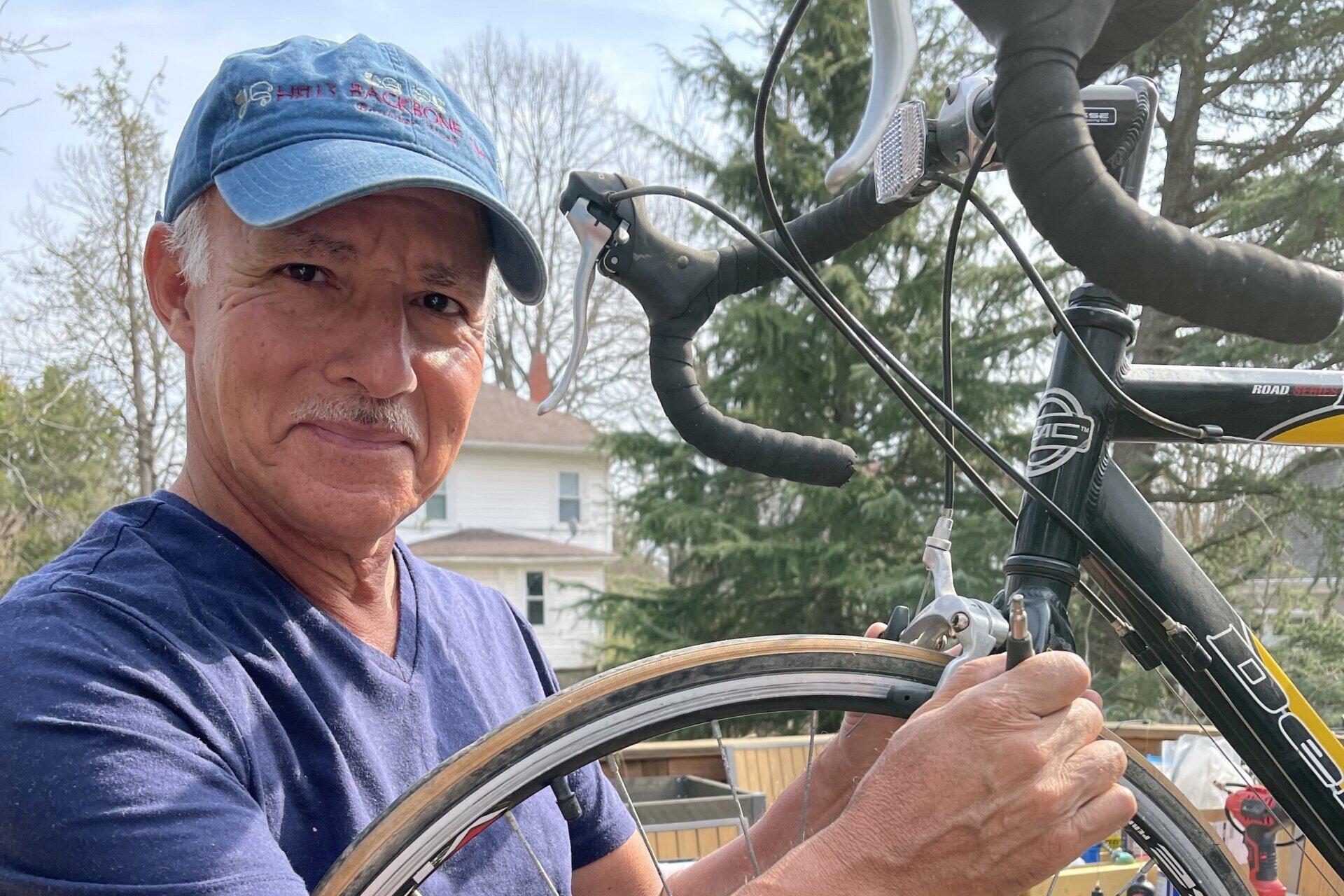Manuel Vera, 74, of Montgomery County takes old, unwanted bikes that have been collecting dust and refurbishes them in his backyard for others to ride.
(Courtesy Manuel Vera)
Courtesy Manuel Vera
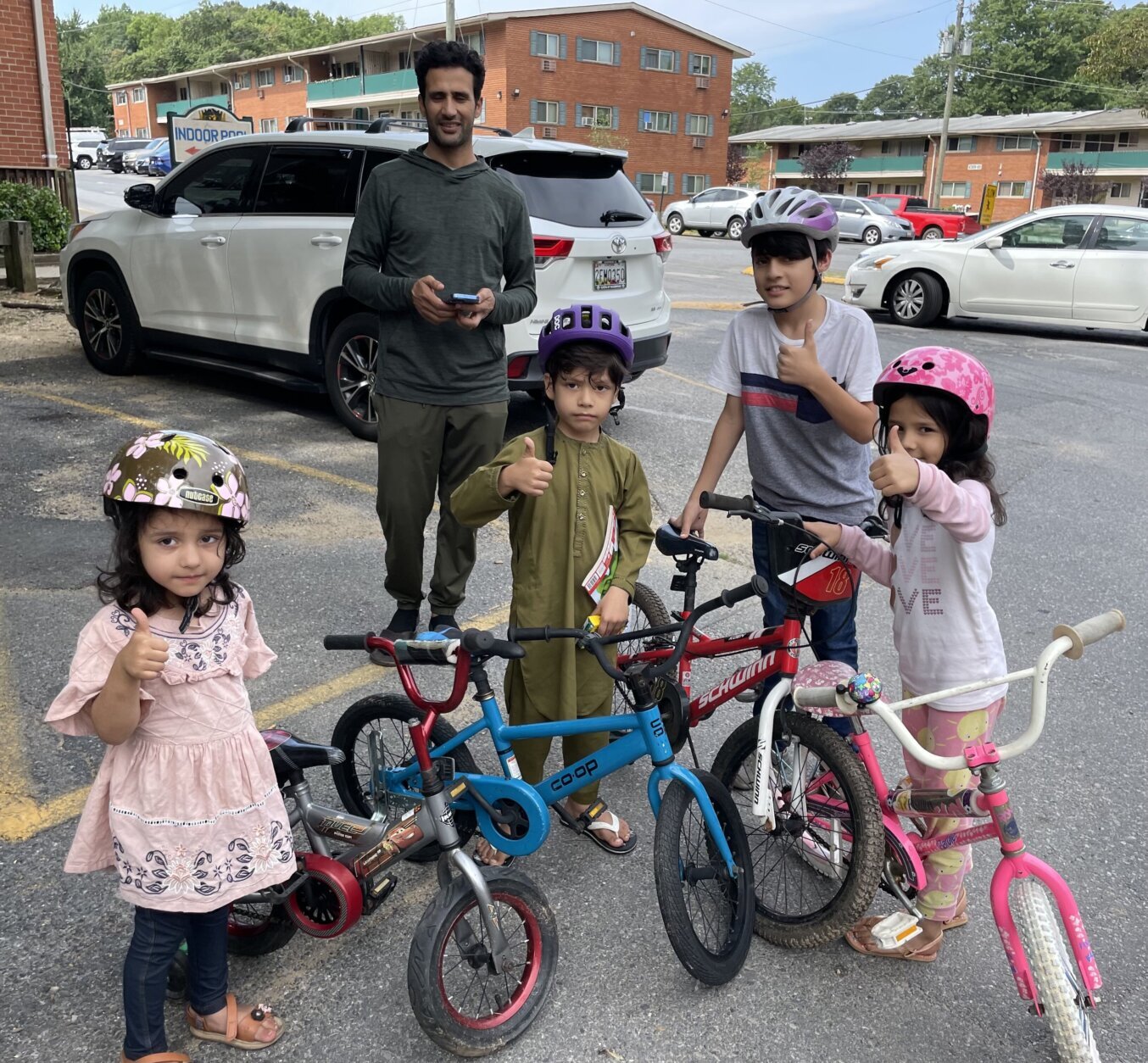
(Courtesy Manuel Vera)
Courtesy Manuel Vera
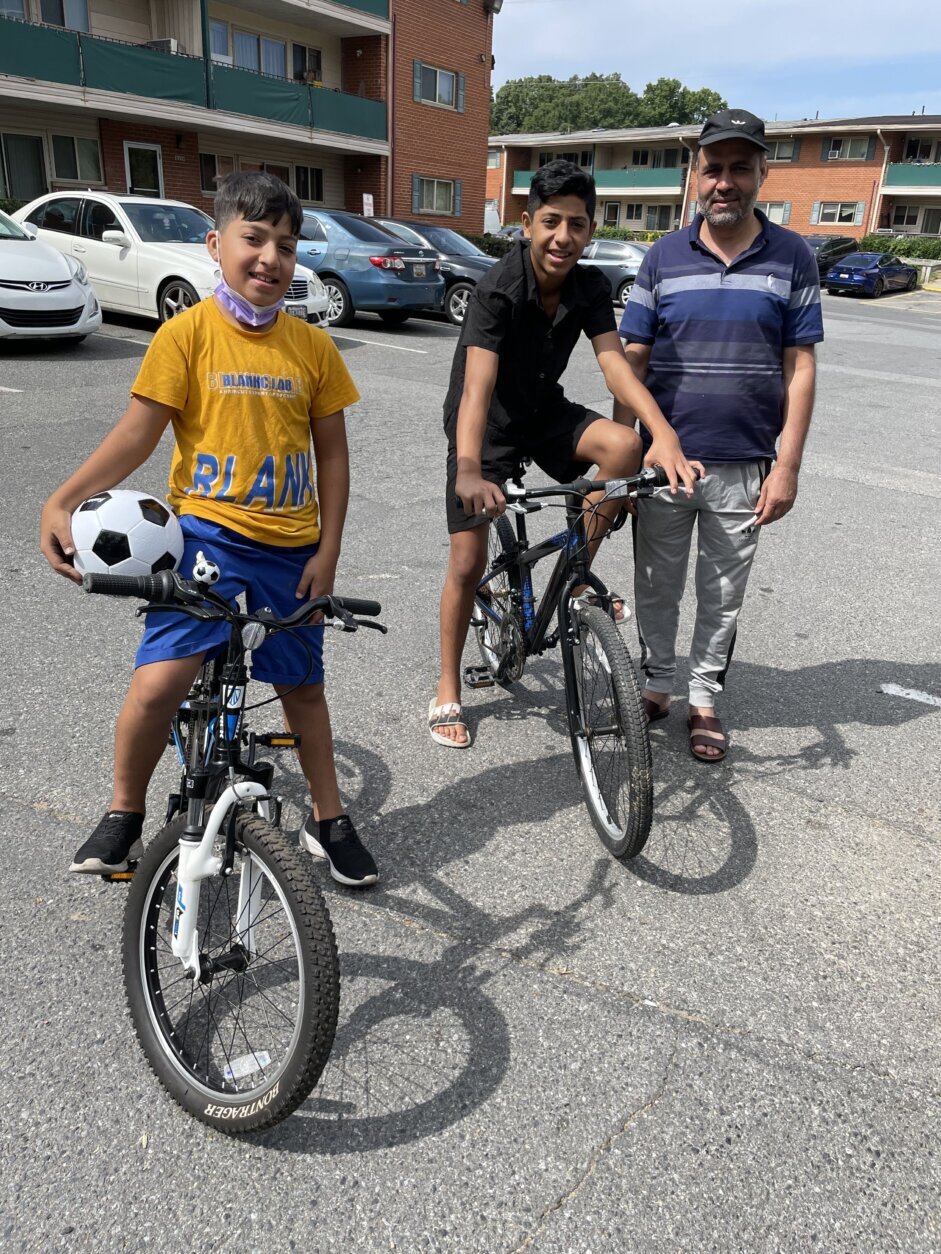
(Courtesy Manuel Vera)
Courtesy Manuel Vera
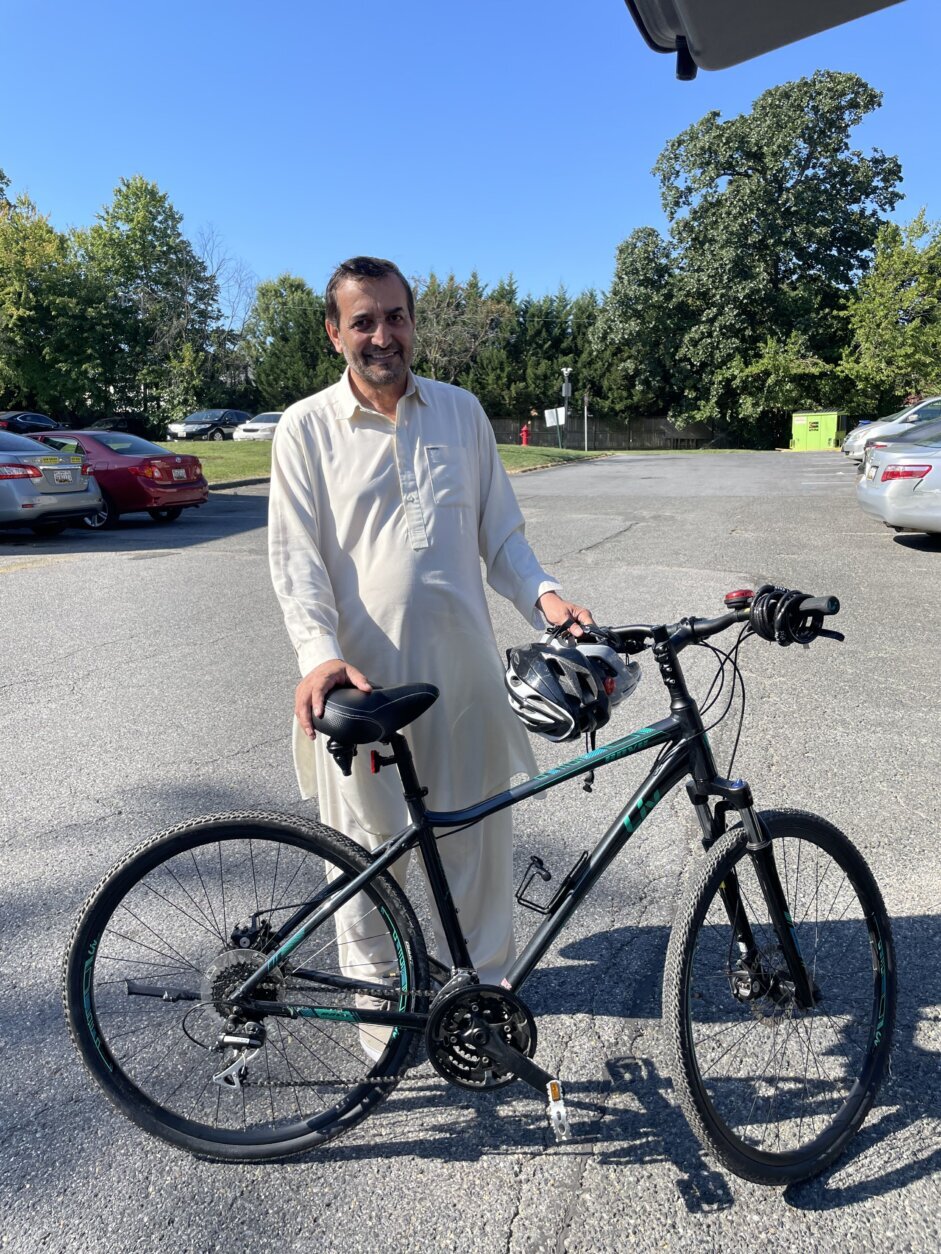
(Courtesy Manuel Vera)
Courtesy Manuel Vera
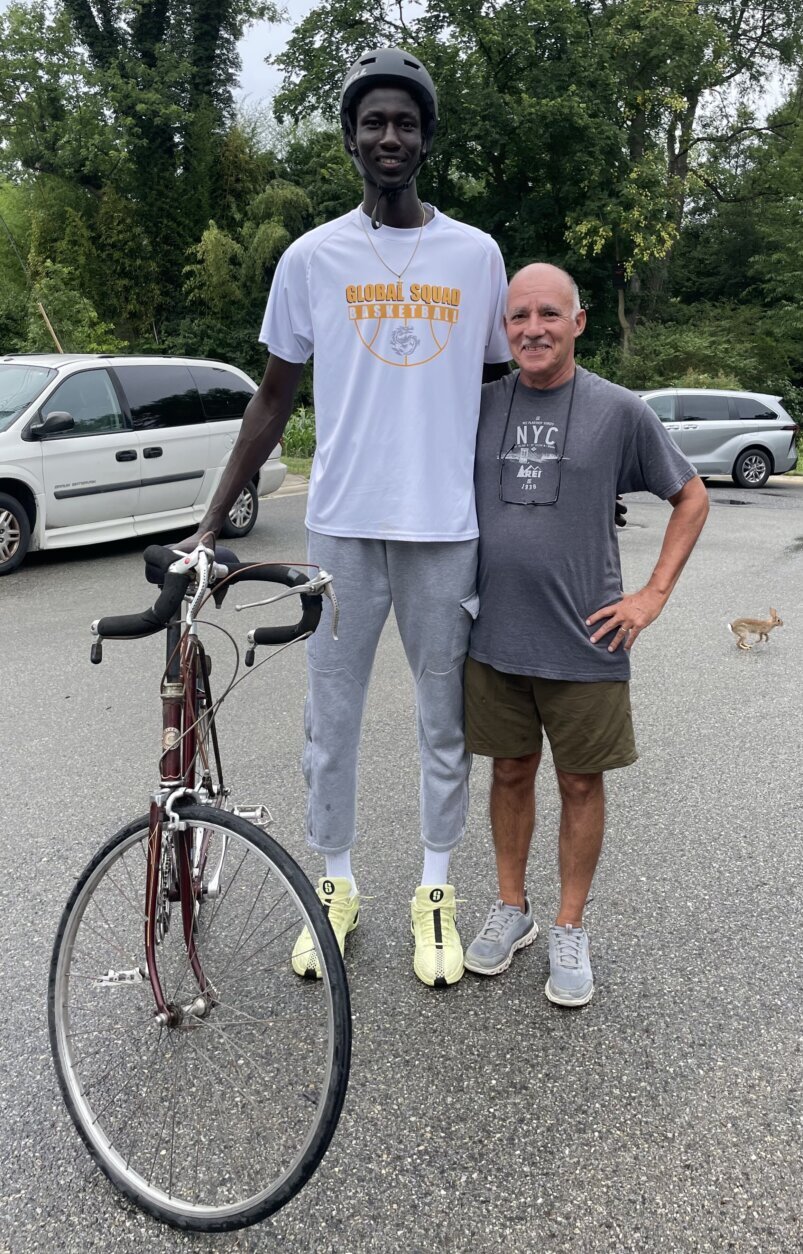
(Courtesy Manuel Vera)
Courtesy Manuel Vera
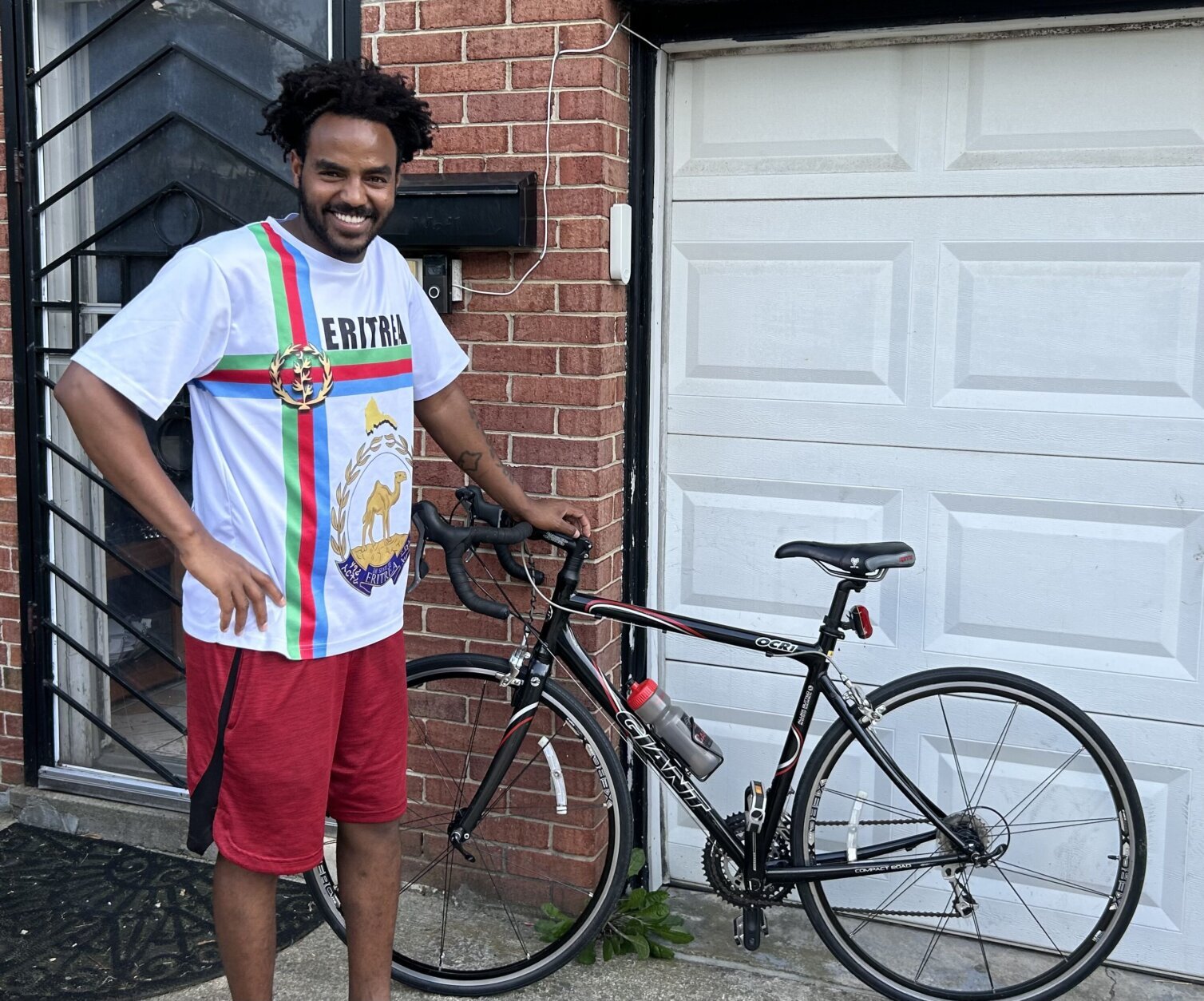
(Courtesy Manuel Vera)
Courtesy Manuel Vera
A 74-year-old man in Montgomery County, Maryland, takes old, unwanted bikes that have been collecting dust and refurbishes them in his backyard.
Then, he gives them away to refugees, immigrants or others in need of some wheels.
Over the past couple of years, Manuel Vera has given away 700 old bicycles donated to him by those in the community.
He does the repairs in Silver Spring while inside his personal workshop — a converted storage unit fit with lighting and Wi-Fi so that he can listen to music while he tinkers.
Vera works on the bikes a couple of days per week. On a busy day, he might spend around five hours on repairs.
‘Collecting dust, not benefiting anyone’
Vera has around 50 people on his waitlist hoping to be matched with the right bike when it comes along. But his pet project didn’t start out as a large-scale operation.
“I wouldn’t call this a project, because a project requires some planning and some certain amount of discipline. This just kind of grew like a weed,” he said.
Faced with extra free time being retired during the pandemic, Vera offered to tune up his neighbors’ bikes, only asking they pay him back for needed supplies.
“I was thinking to myself that perhaps there’s several thousand bicycles out there that never see the light of day — they never get used,” he said.
Kids outgrow bikes and some people who were once avid riders fall into new hobbies and leave the wheels behind.
“A lot of these bikes are in people’s basements and garages, basically collecting dust, not benefiting anyone,” Vera said.
He started asking people for donations and soon after, posted a sign outside of a church as the services ended.
“I had the sign that was crudely painted that said, ‘Free bikes,’” he said, adding that churchgoers took him up on the offer.
‘What’s the catch?’
He took on more and more donated bikes to repair, and stood at a street corner in Silver Spring with the refurbished bikes. That was his “sweet spot,” he said, because it was on a busy street for pedestrian traffic and was in a neighborhood where several ethnic groups lived.
A man on the street once asked Vera, “What’s the catch?”
He told him there was none.
“You give me hope,” Vera recalled the man saying to him.
Vera said the man seemed to be having trouble financially.
“It gave me a lot of encouragement to keep this going,” he said.
Nowadays, much of the donations and requests for bikes come through word-of-mouth after neighbors hear about Vera’s work.
Helping refugees, immigrants
Recently, he’s focused on helping refugees, most of which are from Afghanistan, but he’s also provided bikes to people from parts of Africa, Asia and Central America.
Vera can relate to the experience of coming to the U.S. He came immigrated from Peru at 14 years old with his four siblings and parents, after his father got a job opportunity.
“I felt somewhat privileged and very excited to be moving to the U.S.,” he said. “Contrary to what these folks are going through, they’re basically trying to get away from tyranny, or some really bad economic and social situations in their home country.”
The most requested bikes by refugees are mountain or hybrid bikes, with fat tires.
“You can use them for commuting. They can use them to go shopping or to school,” he said.
A more unusual request — a 15-year-old from South Sudan who is 7-feet tall asked Vera for help finding a bike, he said.
“He has aspirations of being a basketball player in the U.S. He lived in a refugee camp in Kenya before arriving in the U.S., so he was quite happy that I was able to find him a bicycle for a tall person,” Vera said of the teen.
Vera does the tuneups and repairs largely on his own. The process typically entails cleaning, degreasing and lubricating the bikes. He fills the tires up with air and checks the breaks. Sometimes, the bikes need more laborious repairs or replacement parts.
“It gives me a great deal of satisfaction to be able to do something for people directly, rather than going through a charitable organization,” he said.
People with unwanted bikes they’re willing to donate can email Vera.
“As long as I’m getting bikes and people want bikes, I think I’m going to keep this going for quite some time,” he said.
Get breaking news and daily headlines delivered to your email inbox by signing up here.
© 2024 WTOP. All Rights Reserved. This website is not intended for users located within the European Economic Area.
